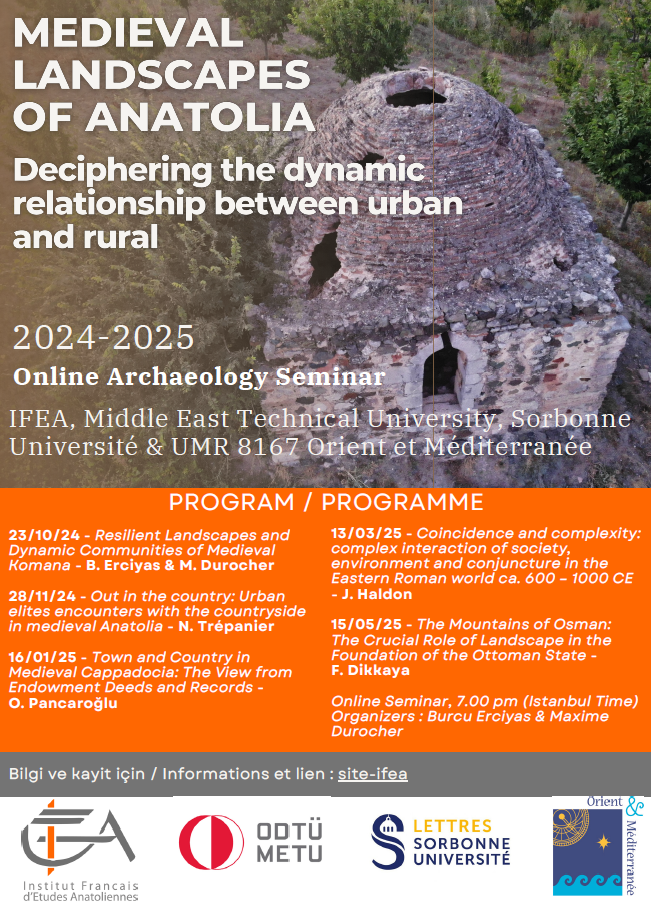Online Talk Series: Medieval Landscapes of Anatolia: Deciphering the dynamic relationship between urban and rural
- English
- Türkçe
Medieval Landscapes of Anatolia: Deciphering the dynamic relationship between urban and rural
We would like to invite you to an online Talk Series entitled "Medieval Landscapes of Anatolia: Deciphering the dynamic relationship between urban and rural" in 2024-2025 organized as a collaboration between Sorbonne University, METU (Middle East Technical University), and IFEA (Institut Français d'Études Anatoliennes, İstanbul). Below you can find a short presentation of the goal of the Talk Series and the poster with the schedule of the talks. All information regarding registration and Zoom link are available on the IFEA website : https://www.ifea-istanbul.net/index.php/fr/evenements/eve-archeo/archaeo...
We will be delighted to have you join us online. Please feel free to distribute in your networks.

Medieval Landscapes of Anatolia: Deciphering the dynamic relationship between urban and rural
The aim of this Talk Series, which is a first step towards a conference to be organised in the autumn of 2025 at IFEA Istanbul, in collaboration with Sorbonne University and METU, is to improve our understanding of settlement processes in Anatolia during the medieval period, with a particular focus on the very complicated transition between Byzantine and Islamic rule (XIIth-XVth centuries). There is a lack of comprehensive and systematic studies in landscape archaeology for the medieval period in Anatolia, as well as a rather conservative approach to settlement systems, the relationship between urban landscapes and rural landscapes, the role of institutions, including religious ones, in the management of rural lands, and their socio-economic implications at both macro (regional) and micro (local) levels. While excavations and surveys in rural/"subsidiary" settlements have great potential to raise important questions about land tenure, population diversity, resource exploitation, sacred economy and spheres of spiritual domination, previous studies have relied heavily on either historical sources or the archaeology of large urban centres. Scholarship therefore needs to develop new ways of integrating data with thought-provoking theory, while strengthening archaeological studies to introduce alternative definitions of urban and rural and to understand their interrelations. We hope that the conference will provide a platform for this kind of debate, while setting the scene with a series of talks by distinguished scholars beforehand.
